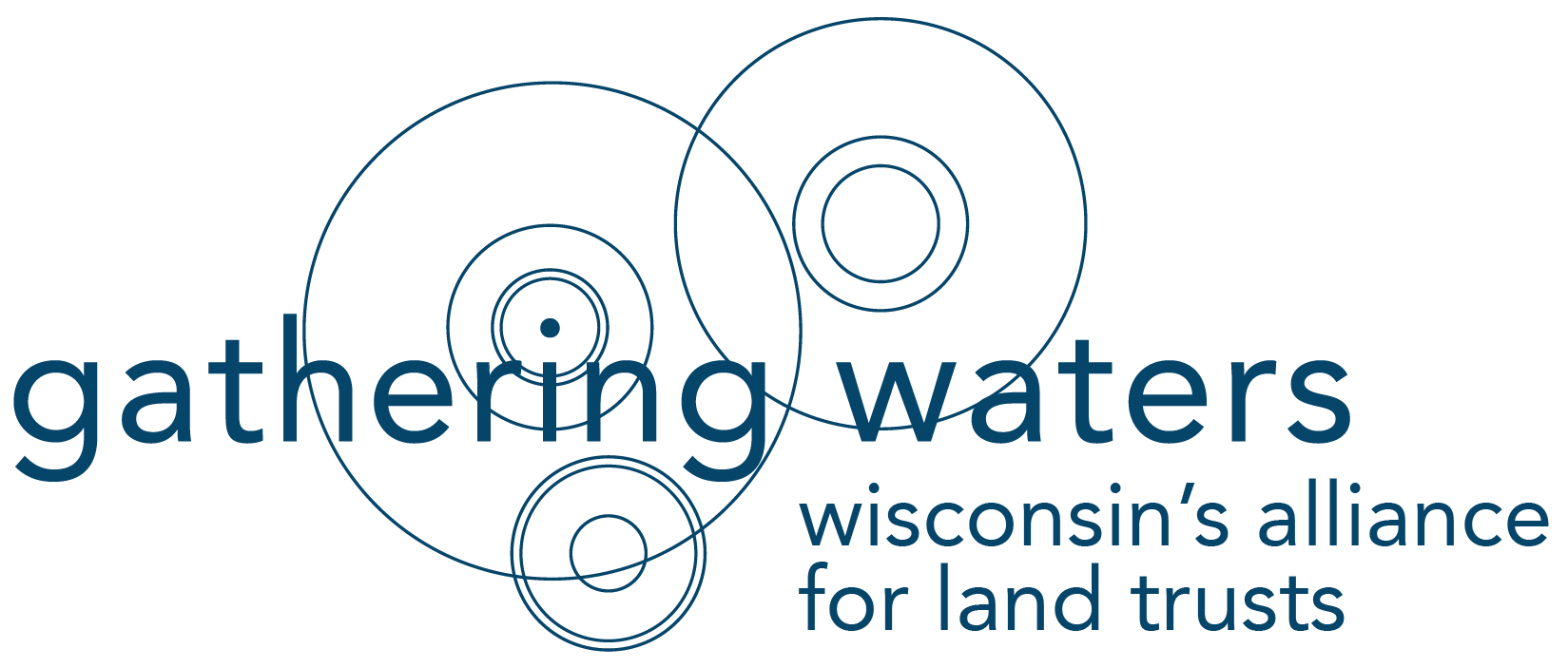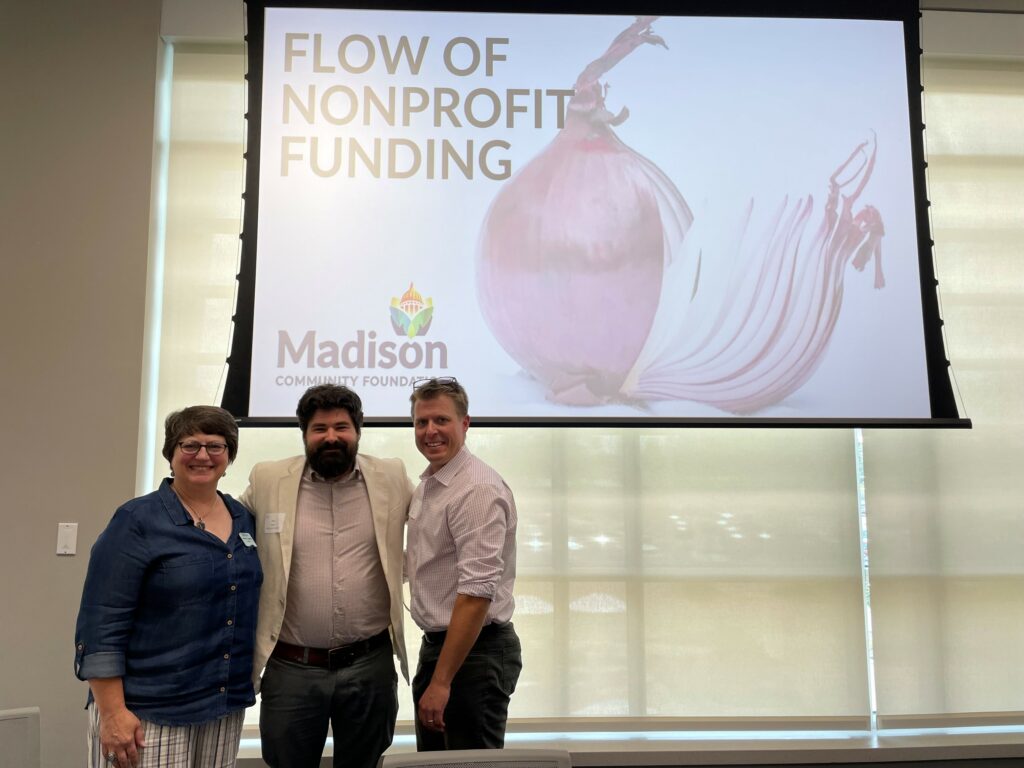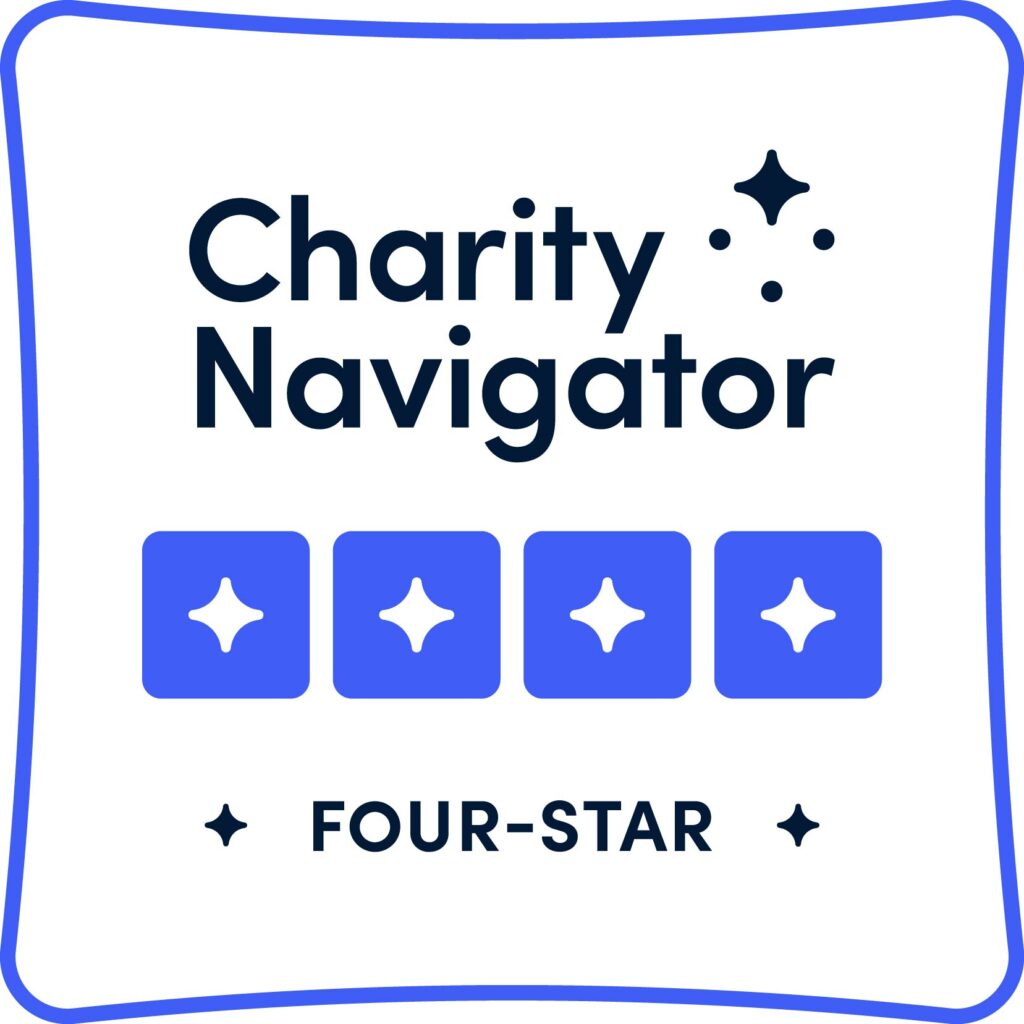Advocacy is an important way to fulfill your mission and secure funding.
Did you know that government funding provides a larger share of money for nonprofits than private contributions? That’s one reason why advocacy should be seen as vital to every nonprofit’s mission.
This was the focus of a recent session hosted by the Greater Madison Chapter of the Association of Fundraising Professionals where Mike Carlson, Gathering Waters’ executive director, joined presenters from the Madison Community Foundation and the Madison Public Schools Foundation.
In fact, almost one-third of nonprofit revenue comes from government sources.
Nonprofits and their development staff tend to focus on raising funds from individuals and foundations. And while philanthropy is often a crucial source of revenue, there’s a bigger picture to consider: approximately 30% of overall nonprofit revenue comes from federal or state governments, compared to 12% from all other funders (individuals, foundations, and corporations).
But the availability of public funding is never guaranteed, especially given the range of competing budget priorities that elected officials must weigh. An old adage in politics is “if you don’t have a seat at the table, then you’re probably on the menu.”
Put another way, if nonprofits don’t speak up for public funding, there’s a real risk that it could be lost. That’s where advocacy fits in—it’s one of the best ways to ensure that your nonprofit and your issues are seated at the table.
Another reason nonprofits should consider engaging in advocacy is mission advancement.
Many of the challenges that charitable organizations are trying to address in society are influenced by laws and policy decisions at varying levels of government. That’s true for everything from health care to education to the environment.
Unfortunately, the term “advocacy” is commonly misunderstood and can carry some negative connotations. Many nonprofits wonder if they’re allowed to engage in advocacy and worry that they might risk jeopardizing their 501c3 status.
In reality, nonprofits absolutely can and should engage in advocacy.
Similarly, private foundations often include language in their grant agreements prohibiting their funding from being used for advocacy. This is a practice that should be reconsidered. Instead, foundations can use their philanthropic support to produce big wins for the issues they care about. By supporting advocacy efforts, foundations can help nonprofits secure significant amounts of public funding and make high-impact reforms to public policy.
For more information on how private funders can legally contribute to advocacy work, read this article by SoCal Grantmakers.
What does advocacy look like at Gathering Waters?
Advocacy is very important to our mission of helping land trusts, landowners, and communities protect the places that make Wisconsin special. Without access to public funding and effective legal tools, our land trust members would be severely limited in the amount of land they can protect.
At Gathering Waters, our advocacy work has several components:
- we focus on developing “grasstops” relationships between elected officials and their constituents,
- we engage a “grassroots” network across the state, making it as easy as possible for people to communicate with decision makers,
- we foster a broad coalition of organizations to join us in advocacy,
- we build the case for conservation through research,
- and we help to shape the public narrative through outreach to the media.
Through our grasstops advocacy, we strive to have good relationships with decision makers with the greatest impact on state funding and policy. This includes building relationships and connecting with constituents, the governor and his senior staff, leaders at state agencies, legislators, and others.
Our grassroots advocacy efforts involve building a network of people who are interested in land conservation. Our top advocacy priority for many years has been the Knowles-Nelson Stewardship Program, Wisconsin’s best source of public funding for conservation, which has contributed more than $500 million to land conservation and outdoor recreation projects since 1990—an impressive investment. The Stewardship Program provides 50% matching grants to land trusts and other nonprofit conservation organizations. Over the lifetime of the program, this public funding has far outpaced the amount of philanthropic money available for conservation.
We spread the word about the impact of the Knowles-Nelson Stewardship Program through Team Knowles Nelson, a dedicated coalition of conservation organizations, fishing and hunting advocates, trail builders, bicycle enthusiasts, and thousands of committed individuals. We encourage these groups to reach out to their local representatives in support of Stewardship Program and other related conservation issues.
Our goals through all of our advocacy efforts are to promote the importance of public funding for land conservation and to safeguard the programs and policies that support land trusts. Even in the most difficult political climates, strong, consistent messaging and relationship-building go a long way.
For more information on nonprofit advocacy, contact Creal Zearing, director of philanthropy at Gathering Waters.
To support Gathering Waters’ advocacy efforts, visit gatheringwaters.org/ways-to-give. You might consider a personal donation in support of our advocacy work as a great return on your investment!



